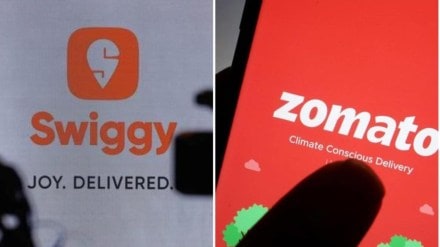Food delivery majors Swiggy and Zomato are preparing for the impact of new Goods and Services Tax (GST) reforms that make them directly liable for taxes on local delivery services routed through their platforms. According to a Moneycontrol report, both firms are weighing whether to pass the added burden on to customers to protect their margins.
The GST Council, in its 56th meeting, clarified that platform-based deliveries would now fall under Section 9(5) of the CGST Act. This brings food aggregators into the tax net for delivery services, even when these are carried out by unregistered gig workers. Local deliveries were already subject to 18% GST with input tax credit, but the amendment makes platforms explicitly responsible for compliance.
What it means for consumers?
For end users, the changes could translate into higher delivery fees. “If the GST burden on delivery services is high, it will likely be passed on to customers,” an executive at a leading food delivery platform said, as quoted by Moneycontrol, noting that the impact may vary across categories depending on consumer sensitivity to price increases.
Members of Swiggy One and Zomato Gold may not face an immediate hike, as subscription plans are treated as value-added services rather than stand-alone deliveries. However, ordinary users could see incremental increases in service charges.
Legal and financial ramifications
Industry experts suggest the move could add as much as Rs 180-200 crore annually to the tax outgo of leading players. Without full input credit, margins are expected to come under pressure. Legal specialists note that the decision mirrors earlier disputes in the ride-hailing sector, where platforms faced years of ambiguity over GST applicability.
Broader context of tax scrutiny
The timing is significant. In December 2024, Zomato received a demand notice of Rs 803 crore in alleged unpaid GST, while Swiggy faced a Rs 327 crore pre-demand notice. The fresh clarification indicates the government’s determination to plug tax leakages in India’s rapidly expanding e-retail economy.
Not all reactions to the GST have been negative. Manish Bajoria, Chief Financial Officer of Bigbasket, welcomed the reform as “a festive gift of GST rationalisation,” adding that it would improve supply chain efficiency and benefit both farmers and consumers.
